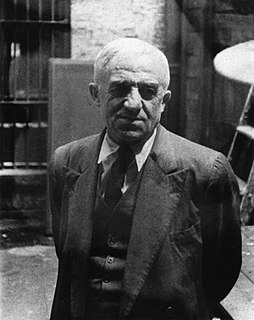A Quote by Joseph Addison
Related Quotes
What thou lovest well remains, the rest is dross What thou lov'st well shall not be reft from thee What thou lov'st well is thy true heritage Whose world, or mine or theirs or is it of none? First came the seen, then thus the palpable Elysium, though it were in the halls of hell. What thou lovest well is thy true heritage.
Why dost thou heap up wealth, which thou must quit,
Or what is worse, be left by it?
Why dost thou load thyself when thou 'rt to fly,
Oh, man! ordain'd to die?
Why dost thou build up stately rooms on high,
Thou who art under ground to lie?
Thou sow'st and plantest, but no fruit must see,
For death, alas! is reaping thee.
A God must have a God for company.
And lo! thou hast the Son-God to thy friend.
Thou honour'st his obedience, he thy law.
Into thy secret life-will he doth see;
Thou fold'st him round in live love perfectly-
One two, without beginning, without end;
In love, life, strength, and truth, perfect without a flaw.
It must be so,-Plato, thou reasonest well! Else whence this pleasing hope, this fond desire, This longing after immortality? Or whence this secret dread and inward horror Of falling into naught? Why shrinks the soul Back on herself, and startles at destruction? 'T is the divinity that stirs within us; 'T is Heaven itself that points out an hereafter, And intimates eternity to man. Eternity! thou pleasing, dreadful thought!
Look what thy soul holds dear, imagine it
To lie that way thou goest, not whence thou com'st.
Suppose the singing birds musicians,
The grass whereon thou tread'st the presence strewed,
The flowers fair ladies, and thy steps no more
Than a delight measure or a dance;
For gnarling sorrow hath less power to bite
The man that mocks at it and sets it light.
Oh, thou did'st then ne'er love so heartily. If thou rememb'rest not the slightest folly That ever love did make thee run inot, Thou has not loved. Of if thou has't not sat as I do now, Wearying they hearer in thy mistress's praise, Thou has not loved. Of if thou hast not broke from company Abruptly, as my passion now makes me, Thou has not loved. (Silvius)































